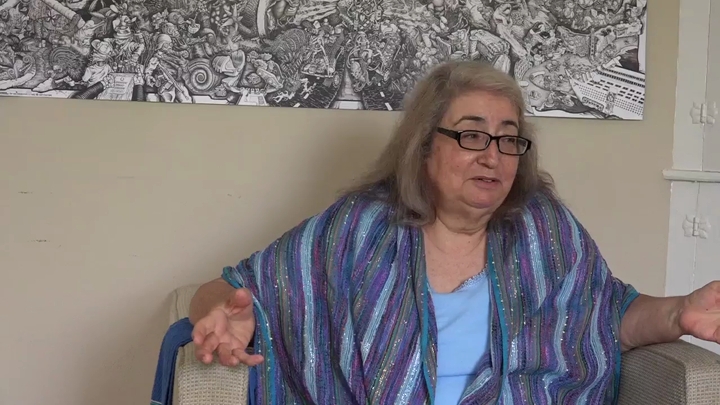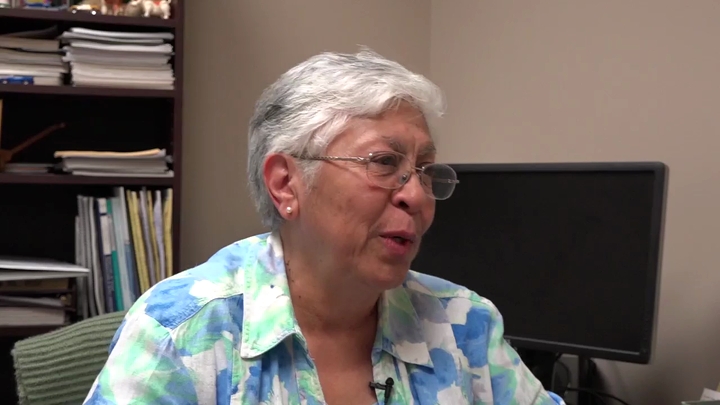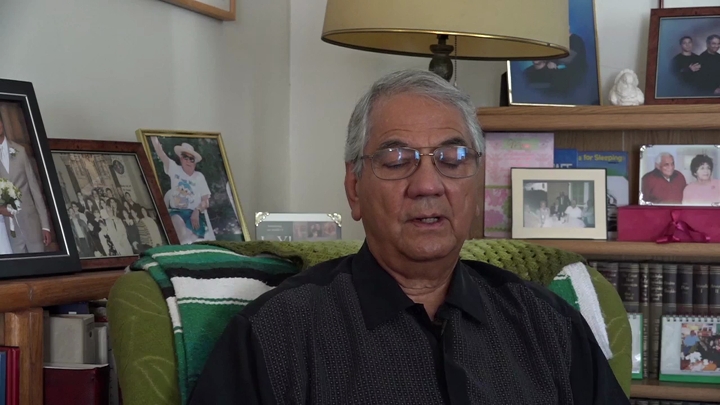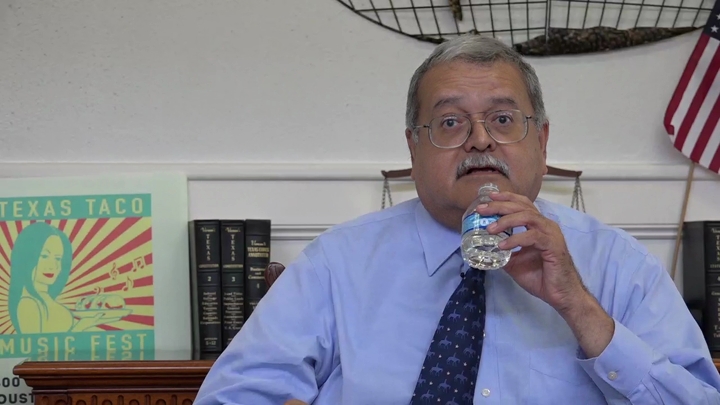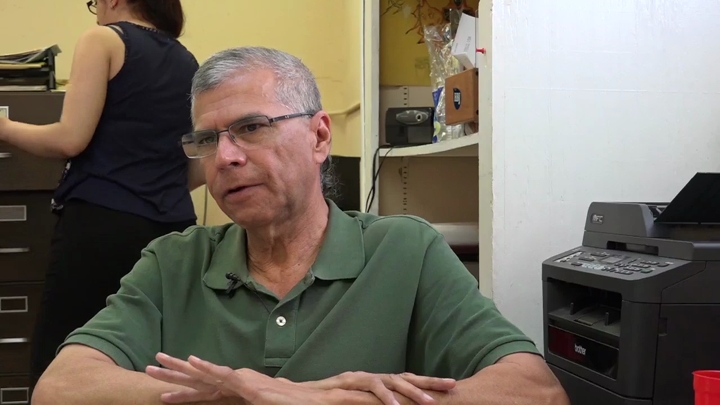Jimenez / Becoming Heavily Involvemed in MAYO
sign up or sign in to add/edit transcript
Interviewer: Who were some of the people who were organizing in the Young Democrats and was this an avenue to organize across racial lines to be together? Maria Jiménez: I only remember a couple of people- Barbara – I cannot remember her last name- That helped to organize. Daniel Bustamante would remember her last name. I cannot. Again, I basically stuck to more Latinos. I remember we participated in voter registration drives. We participated in the Ralph Yarborough campaign. Again, it was more about being a part of the group of Latinos who were active at the time. They included other people that were older like David Lopez, or other people who had been active in democratic party politics that one met there. But I really do not remember much more, I am sorry, my memory is not good. Interviewer: So you switched to MAYO and Before we more into UH MAYO, can you talk more about Barrio MAYO and whether or not you had a relationship with them? I had no relationship with Barrio MAYO. I went straight to the university MAYO. It was the University MAYO who sent the Barrio MAYO – who had taken over a church. I remember going to the church and I remember meeting some of them. But it was in University MAYO that I became active and knowing about the work of Barrio MAYO, and getting involved in activities of Barrio MAYO. I never belonged to Barrio MAYO. I always thought the division was kind of superficial myself because everybody I knew from Houston lived in the barrios. I live in the barrio, Ed Castillo lived in the barrio, everybody. The only ones that lived in apartments or somewhere different were ones coming from south Texas or the valley. But those of us who lived in the barrio and came back home to the barrio were the ones facing all the issues that everyone else was facing. I just think it was superficial. They were more radical than we were. But I think it was a- I do not know if they were really that much radical ideologically? But not even in actions because I think we did a lot of radical takeovers, as well. Interviewer: What radical takeover did you do at U of H? Maria Jiménez: We took over the president’s office, constantly. Interviewer: Can you talk more about that? Maria Jiménez: A few people would take over the president’s office now, I think. Basically, whatever issue we had we would mobilize people and fill the office and we would not leave until our issue were addressed and they came and talked to us. We did that constantly. We did that type of mobilization. Interviewer: What were some of the issues that you asked the president to address? Maria Jiménez: One first was the admissions. We wanted to change the admissions policy to admit people who had not made the criteria that U of H Set. We asked that they be given support not only to come in but to – as they were going to U of H. I remember that was one of the first issues the admissions policy. The second policy when we took over was the Mexican American studies- that was a constant tension, the hiring of Mexican American faculty. At the time they said they had fourteen, but a woman who had married a Mexican was counted. It was actually no one. I remember mobilizing about that. Then mobilizing about- later, later years- there was a scholarship fund that was approved by the state legislature for minority graduates. We found out U of H was using it to prop up all graduates rather than dedicate it just to minority graduate students. So, we mobilized and fed in on that. So there were primarily issues relating to access to U of H. Interviewer: I know you were very involved in CMAS- Center for Mexican American Studies. Can you tell us about your involvement? Why was this such an important issue for the students on campus? Maria Jiménez: Again, the issue and the denial of our Mexican heritage, and who we were, and our place in history, and out contribution to US society was part of the Chicano movement. So, as an extension we wanted to ensure that other generations had not been deprived of what we had been deprived. We wanted specific course dedicated to the community and its contributions, and its people within the community. So, very early one of the demand was the Center for Mexican American Studies, and really our biggest contribution as students- I mean we always pressed and got a course- but our biggest contribution as I remember- we wrote a proposal- several of us- and we went to the state legislator. We did not understand it- but there was a big fight between the Democrats, the conservatives, and la roscas – the newly elected progressive democrats- the liberal democrats wanted to get the conservative democrats. Here we come with our little petition to have Mexican American studies and they grabbed it and made it a special line item and that is how it was established at U of H.


